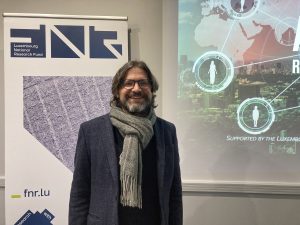On 16 January 2025, we were delighted to welcome Prof. Philipp Ager from the University of Mannheim.
As part of our lecture series on Cross-Border Labor Mobility, Prof. Ager delivered an insightful lecture on “The Effect of Immigration Restrictions on the Economy: Lessons from the 1920s Border Closure”.
In his lecture, Philipp Ager discussed how the 1920s immigration quotas affected the employment opportunities for US-born workers and public health. Ager and his co-authors developed an estimation strategy that could locally identify the “missing immigrants” effect of the border closure. This approach was then used to examine whether the immigration policy “archived” the intended goals. Ager argues that this was not the case. Instead, the researchers found that in areas with more missing immigrants, the border closure did not increase the wages of native workers. Why was that the case? Overall, their findings suggest that the immigration restrictions led to substitution toward other sources of labor (e.g., internal migrants) and substitutable capital. Although the immigration quotas led to a decline in infectious disease mortality, Ager and his co-authors show that the quota-induced mortality decline was not because immigrants brought diseases with them, but primarily because of lower crowding, as immigrants lived where housing conditions were poorest and public health resources were often inadequate. This suggests that it was the unfavorable living conditions that created the apparent link between high urban mortality rates and immigration in this period. More generally, these findings speak to the health challenges facing urban populations today. Substandard housing and weak public health infrastructure remain a major public health issue in the U.S. and worldwide. The United Nations regards improvements in housing conditions as key to limiting the spread of infectious diseases. Well-designed housing policies and sufficient public health capacity are crucial to reducing potential health risks.
This lecture series is organized by Luxembourg Institute of Socio-Economic Research (LISER) & the Doctoral School in Economics, Finance and Management from the University of Luxembourg, in the framework of the Fonds National de la Recherche (FNR), Luxembourg funded project ACROSS and financing scheme RESCOM.
The next lecture series will feature Prof. David McKenzie from World Bank and will focus on “Identifying and Changing the Impacts of Migration on Development”.
An event supported by the Luxembourg National Research Fund (FNR) (PRIDE19/14302992) and (RESCOM/2024/LE/18786706)

